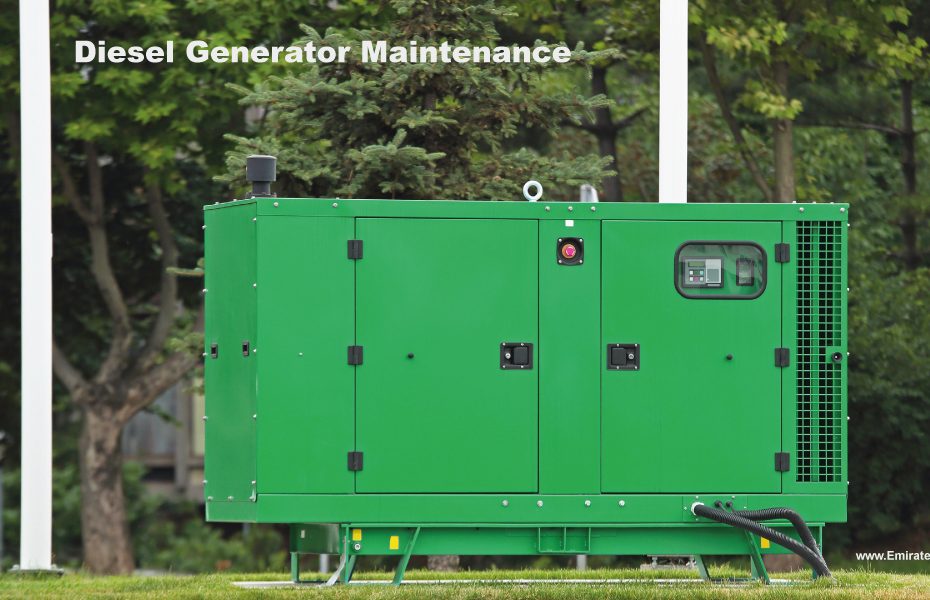Diesel generators are an essential source of backup power for many businesses and homes. They provide a reliable source of electricity during power outages, emergencies, and in remote locations where grid power is not available. However, like all machines, diesel generators require regular maintenance to keep them running smoothly and efficiently. Here are some tips and tricks for maintaining your diesel generator:
What is a diesel generator?
Diesel generators are machines that use diesel fuel to generate electricity. They are commonly used in homes, businesses, and industries where reliable backup power is essential. B. Importance of maintaining diesel generators Regular maintenance of diesel generators is crucial for ensuring their optimal performance, extending their lifespan, and avoiding unexpected downtime and costly repairs.
General Maintenance Tips
A. Regular inspections
Regular inspections of your diesel generator help identify potential issues before they become major problems. Inspect the generator for any signs of wear and tear, leaks, loose connections, and other issues that may affect its performance.
B. Cleaning
Keep your diesel generator clean and free of debris, dust, and other contaminants. Use a soft cloth or brush to clean the exterior, and remove any dirt or debris that may have accumulated on the engine or other parts.
C. Fluid checks
Check the oil, coolant, and fuel levels regularly and top them off as needed. Also, inspect the fuel and oil filters and replace them if necessary.
D. Replacing filters
Replace air filters regularly to ensure that the engine runs smoothly and efficiently. A clogged air filter can reduce engine performance and increase fuel consumption.
E. Battery maintenance
Check the battery regularly and replace it when necessary. Also, clean the battery terminals and make sure that they are tight and free of corrosion.
Specific Maintenance Tips
A. Fuel System
1. Fuel storage
Store diesel fuel in a clean, dry, and well-ventilated area away from direct sunlight and sources of heat. Also, make sure that the fuel tank is clean and free of water and sediment.
2. Fuel quality
Use high-quality diesel fuel with the recommended octane rating for your generator. Low-quality fuel can cause engine damage, reduce fuel efficiency, and increase emissions.
3. Fuel additives
Consider using fuel additives to improve fuel quality and performance. Additives can help prevent fuel gelling, improve fuel economy, and reduce emissions.
B. Cooling System
1. Coolant level checks
Check the coolant level regularly and top it off as needed. Also, inspect the coolant hoses and clamps for leaks and wear.
2. Radiator cleaning
Clean the radiator regularly to remove dirt, debris, and other contaminants that can reduce its efficiency. Use a soft brush or compressed air to clean the fins and the exterior of the radiator.
3. Thermostat replacement
Replace the thermostat periodically to ensure that the engine runs at the correct temperature. A faulty thermostat can cause the engine to overheat or run too cold, which can damage the engine.
C. Electrical System
1. Wiring inspection
Inspect the wiring and electrical connections regularly and repair or replace any damaged or corroded wires or terminals.
2. Battery checks
Check the battery regularly and replace it when necessary. Also, clean the battery terminals and make sure that they are tight and free of corrosion.
3. Alternator inspection
Inspect the alternator regularly to ensure that it is charging the battery properly. A faulty alternator can cause the battery to fail and reduce the efficiency of the generator.
Troubleshooting and Repairs
A. Common issues
1. Starter motor failure
The starter motor is responsible for cranking the engine when the generator is started. If the starter motor fails, the engine will not start. Signs of starter motor failure include a clicking sound when you turn the key, a slow or hesitant cranking of the engine, or a complete failure to start.
2. Battery problems
A weak or dead battery can cause the generator to fail to start or run poorly. Signs of battery problems include difficulty starting the generator, a weak or slow cranking of the engine, or dimming headlights or interior lights.
3. Fuel system issues
Fuel system issues such as clogged fuel filters, dirty fuel injectors, or a faulty fuel pump can cause the generator to run poorly or not at all. Signs of fuel system issues include rough idling, hesitation or stalling, and a loss of power.
B. Repairs and replacements
1. When to call a professional
If you are not comfortable performing maintenance or repairs on your diesel generator, it is always best to call a professional. A professional generator technician has the expertise and equipment necessary to diagnose and repair any issues with your generator.
2. Finding replacement parts
If you need to replace any parts on your generator, make sure to use high-quality, OEM (Original Equipment Manufacturer) parts. You can find these parts at authorized dealers or online stores that specialize in generator parts.
Conclusion
Regular maintenance is essential for keeping your diesel generator running smoothly and efficiently. By following the tips and tricks outlined in this blog, you can ensure that your generator is always ready to provide reliable backup power.
To summarize, regular inspections, cleaning, fluid checks, filter replacements, and battery maintenance are essential for keeping your diesel generator in good condition. Additionally, paying attention to specific areas such as the fuel system, cooling system, and electrical system can help prevent issues before they become major problems.
Always make sure to follow the manufacturer’s recommendations for maintenance and operation, and never hesitate to call a professional if you are unsure about any aspect of maintaining or repairing your generator. With proper maintenance, your diesel generator can provide years of reliable service and peace of mind.
